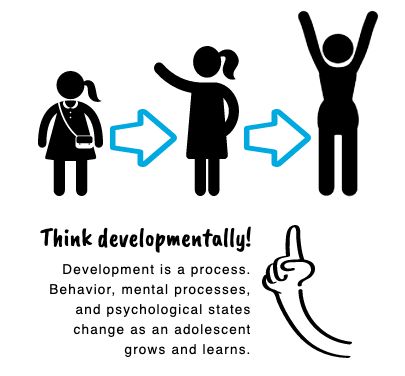Thinking “Developmentally”

It’s important to keep a developmental perspective when talking about adolescence.
Here’s a brief summary of what it means to think developmentally.
At the UCLA Center for the Developing Adolescent, we believe it is important to think developmentally about adolescence. Thinking developmentally means recognizing that adolescence is a time of unique capacities, motivations, and contexts, distinct from childhood or adulthood.
It also means understanding that adolescence is a period of dynamic biological, cognitive, and social changes that take place over more than a decade. These changes make adolescents especially sensitive to certain types of learning and experiences depending on where they are in development, creating opportunities and challenges at each stage for influencing lifelong health and well-being.
Adolescence is not a homogeneous period. Just as the appropriate care for an infant is different than for a toddler and different again for an elementary school student, the support and opportunities best for a 12-year-old are different than those for a 16-year-old or a 20-year-old.
The most effective programs, policies, and research on adolescents will recognize this developmental trajectory and the specific opportunities that occur during each stage of adolescent development.
